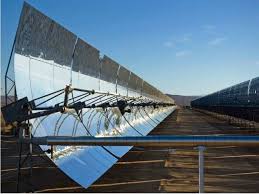ESI Africa
Morocco is set to construct the Midelt Phase I CSP Project, which will generate solar power through an innovative hybrid concentrated solar power (CSP) and photovoltaic (PV) solution.
This is after the African Development Bank (AfDB) and the World Bank each approved finance of $25 million for the project.
The funds will be channeled via the Climate Investment Funds’ Clean Technology Fund (CIF CTF), the AfDB explained.
The project consists of two separate CSP plants, each with 150-190MW CSP capacity and a minimum of five hours of thermal storage.
Midelt Phase I CSP Project
The project’s innovative hybrid solar design will be built on a unique Public-Private Partnership between the Moroccan Agency for Sustainable Energy (MASEN) and private sector sponsors – with a build, own, operate and transfer (BOOT) project structure and implementation approach.
The envisaged installed capacity of the PV component could reach approximately 150-210MW, making the total capacity of each of the proposed plants 300-400MW; and the total capacity of this first phase 600-800MW.
AfDB’s Director, Climate Change and Green Growth, Anthony Nyong, said: “In 2015, the world saw an important shift in CSP investment from the developed to the developing world, particularly in Morocco.”
Nyong added: “Morocco’s path-changing Noor CSP programme under CTF, for which we serve as implementing agency, has been a critical element of that shift.
“This new project, which will be modelled on the Noor operational and financial structure, will increase the development of solar energy and further help diversify the country’s energy mix and enhance its energy security.
“We believe that the project can serve as a model for other countries in the region and beyond.”
Morocco’s renewable energy plan
The Midelt Phase I CSP Project is expected will significantly contribute to Morocco’s achievement of its Nationally Determined Contribution under the Paris Agreement, including its goal of achieving 52% of installed capacity from renewable energy (20% from solar) by 2030. Read more…
Morocco’s solar plan will also contribute to industrial development, competitiveness and could create about 30,000 jobs.
“Until now, CSP has been the dominant renewable energy technology assuring electricity during peak hours and by adding a PV component, we expect enhancing the reliability of the power plant,” AfDB’s CIF Programme Coordinator and Senior Climate Finance Officer, Leandro Azevedo, stated.
“The combination of these two technologies will allow Morocco to optimise the dispatch of generated power during the daytime by ensuring that the utilisation of the CSP component can be maximised during night-time through the use of thermal storage,” Azevedo said.








